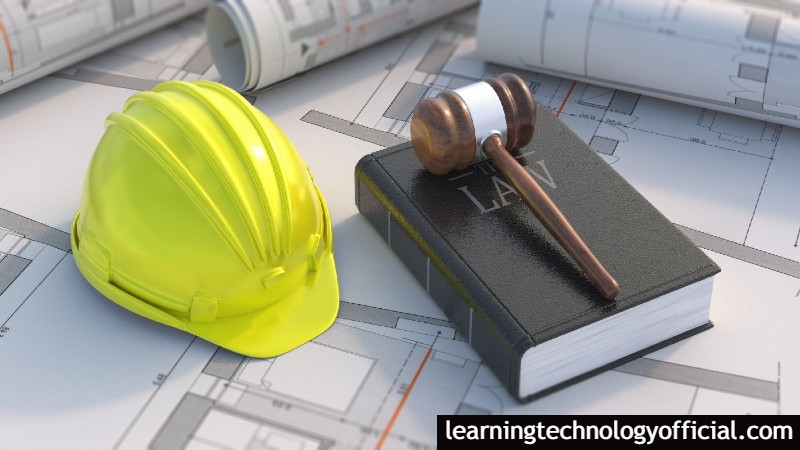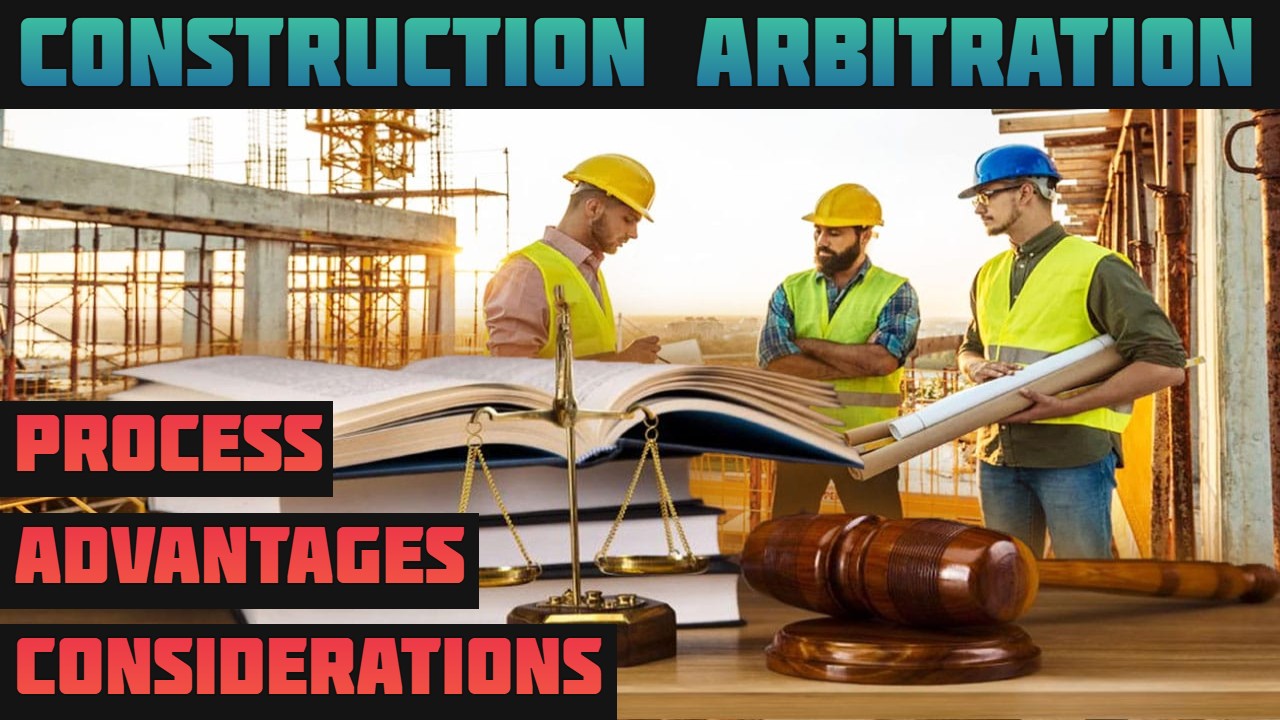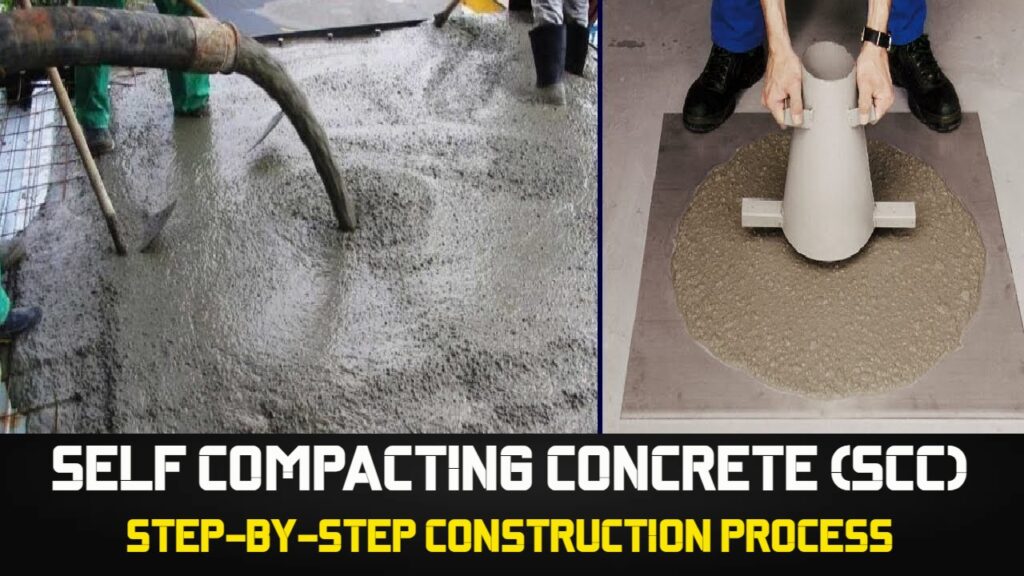Construction Arbitration: The construction sector is inherently complicated since it includes so many stakeholders, complex contracts, and technological difficulties. Conflicts are nearly inescapable in a situation of this complexity. Traditional litigation may be costly, time-consuming, and disruptive to existing initiatives when disputes occur. Construction arbitration has become a popular form of dispute settlement to solve these difficulties. This article examines construction arbitration as a viable option, as well as its scope, method, benefits, and drawbacks.
Contents
- 1 Understanding Construction Arbitration
- 2 Scope of Construction Arbitration
- 3 How Construction Arbitration is different from Generic Arbitration
- 4 The Construction Arbitration Process
- 5 Advantages of Construction Arbitration
- 6 Considerations and Limitations
- 7 Conclusion
- 8 FAQ
- 8.1 What is construction arbitration?
- 8.2 Why choose construction arbitration over litigation?
- 8.3 How does construction arbitration work?
- 8.4 Who are the arbitrators in construction arbitration?
- 8.5 Can parties choose arbitrators in construction arbitration?
- 8.6 Is construction arbitration confidential?
- 8.7 Can construction arbitration be faster than litigation?
- 8.8 Are construction arbitration awards enforceable?
- 8.9 Can parties appeal construction arbitration awards?
- 8.10 How can parties incorporate construction arbitration (CA) into their contracts?
- 8.11 Is legal representation necessary in construction arbitration?
- 8.12 Are there specific arbitration institutions for construction disputes?
Understanding Construction Arbitration
A. Definition of Construction Arbitration and Purpose: A kind of alternative dispute resolution (ADR) called construction arbitration allows parties to settle disputes out of court. It entails taking the issue before one or more impartial arbitrators, who then issue a legally enforceable judgment known as an arbitral award. Construction arbitration is designed to offer a fair, effective, and economical settlement for disputes that arise in construction projects.

B. Applicability and Arbitration Clauses: Arbitration for construction disputes can be utilized in a variety of situations, such as contract interpretation, project delays, poor workmanship, payment problems, and contract breaches. Usually, parties agree to arbitrate problems rather than litigate them by including an arbitration clause in their contracts.
Scope of Construction Arbitration
Construction disputes can involve a variety of disagreements, therefore the scope of construction arbitration is fairly broad. Here are some typical scenarios in which construction arbitration may be used:
- Contract Interpretation: Construction projects sometimes require complicated contracts with several stakeholders. Contract terms, liabilities, the scope of the task, or specifications interpretation disputes may occur. These interpretation disputes may be resolved in a venue provided by construction arbitration.
- Delay and Disruption Claims: Weather conditions, unanticipated events, problems with contractors or subcontractors, and other reasons frequently cause delays and interruptions in construction projects. There may be disagreements over who is to blame for delays, demands for further time, or payment for incurred additional expenditures. Arbitration in the construction industry can assist in identifying faults and determining the best course of action.
- Defective Workmanship or Design: Conflicts between owners, contractors, and design experts may result from construction flaws. Construction arbitration can handle these disagreements and decide the proper corrective actions or compensation, regardless of whether there was subpar workmanship, a failure to follow specifications or design flaws.
- Payment Disputes: Payment disputes are frequent in building projects. There can be problems with advance payments, change orders, or non-payment. These payment problems can be resolved through construction arbitration, which can also establish the amount due, support claims, and handle any contract violations involving payment duties.
- Construction Claims and Change Orders: Conflicts between partners are frequently brought up by changes to the project’s scope or design. Construction arbitration can deal with allegations involving change orders, such as whether they were legitimately authorized, the cost of additional work, or disagreements resulting from change orders that were refused.
- Professional Liability: Claims relating to professional negligence or mistakes in designs may be made against design experts like architects and engineers. Such claims may be decided in construction arbitration, which may also establish accountability for any subsequent damages.
- Termination and Default: When parties end contracts or claim defaults, disagreements may occur about the legality of the termination, the validity of claims of contract violation, or the proper remedies. These termination and default conflicts may be resolved via construction arbitration.
- Insurance and Indemnification: There may be disagreements about insurance coverage, how claims are handled, or indemnity contracts. The rights and duties of the parties engaged in these insurance and indemnity concerns might be established via construction arbitration.
It’s crucial to remember that construction arbitration’s application is not restricted to the aforementioned fields. Construction conflicts may take many different forms and include a number of different legal and technical issues. Construction arbitration is a useful instrument for the construction industry because it offers a flexible and adaptive framework to address the complexity and subtleties of such conflicts.
How Construction Arbitration is different from Generic Arbitration
Despite adhering to the fundamental principles of arbitration, construction arbitration has several distinctive features that set it apart from general arbitration. Here are some significant variations:
- Industry-specific expertise: Building arbitration uses arbitrators with specialized knowledge and skill in the law and business procedures of the building sector. They are aware of the technological challenges, rules, and regulations unique to the building sector. Because of their knowledge, they can decide wisely based on factors unique to their sector.
- Technical evidence and complexities: Complex technical evidence, such as architectural drawings, engineering specifications, or building procedures, is frequently used in construction disputes. It is essential to effectively resolve disputes that the arbitrators in construction arbitration be used to examine and comprehend such technical material.
- Construction contracts and industry practices: Complex contracts with detailed clauses relating to the scope, deadlines, payment conditions, and dispute resolution procedures are frequently used in construction projects. Construction arbitration ensures a contextually relevant conclusion by taking into account these contract clauses and industry standards when handling conflicts.
- Fast-paced and time-sensitive nature: Timelines for construction projects are sometimes quite rigorous, and delays can have a large financial impact. Construction arbitration understands the need to swiftly resolve disputes to reduce project interruptions and monetary losses. Compared to general arbitration, the accelerated nature of construction arbitration proceedings enables a quicker decision.
- Construction-specific disputes: Construction arbitration handles a wide range of disputes that are peculiar to the sector, including accusations of delays, poor workmanship, payment issues, modification orders, and design flaws. Given the particular difficulties faced by the building sector, the rules and procedures of construction arbitration are specifically designed to handle these particular sorts of disputes.
- Industry standards and regulations: Numerous industry norms, rules, and guidelines apply to construction projects. When evaluating compliance and culpability, construction arbitration takes into account these standards and laws, ensuring that the decision adheres to accepted practices.
- Contractual relationships and parties involved: Numerous parties, such as owners, contractors, subcontractors, architects, engineers, and suppliers, are frequently involved in construction projects. The intricate web of contractual linkages between these parties and the interaction of their rights and responsibilities are taken into consideration in construction arbitration.
Although construction arbitration has several distinctive features, it nonetheless adheres to the fundamental principles of arbitration, including the consensual nature of the proceedings, the impartiality of the arbitrators, the secrecy of the proceedings, and the enforcement of arbitral decisions. Depending on the institution of arbitration chosen or the agreed-upon regulations in the arbitration agreement, the particular rules and processes for construction arbitration may change.
The Construction Arbitration Process
A. Agreement to Arbitrate: By incorporating an arbitration clause in the initial contract or by entering into a separate agreement if a dispute occurs, the parties participating in a construction project agree to settle disagreements through arbitration.
B. Selection of Arbitrators: The parties are free to select arbitrators who are knowledgeable in construction legislation and business procedures. An arbitration organization may supply a panel of arbitrators, or the parties may choose their own arbitrators.
C. Pre-Hearing Procedures: The parties communicate pertinent data, proof, and legal arguments through written submissions prior to the arbitration hearing. By streamlining the hearing and concentrating on the important problems, this approach helps.
D. Arbitration Hearing: In contrast to a court trial, the arbitration hearing is held in a less formal atmosphere. The parties argue their positions, presenting evidence such as papers, expert reports, witness testimony, and other materials. The arbitrators examine the arguments put forward, examine the evidence, and raise questions.
E. Arbitral Award: The arbitrators deliberate after the arbitration hearing before issuing a written judgment that is referred to as the arbitral award. This judgment is valid and enforceable in court.
Advantages of Construction Arbitration
A. Expertise and Industry Knowledge: The technical difficulties involved in building disputes can be better understood by arbitrators with a specialized understanding of construction law and industry practices. Their knowledge enables an objective and well-informed decision-making process.
B. Flexibility and Customization: Construction arbitration allows for flexibility in a number of areas, including the choice of arbitrators with the necessary knowledge, the venue of the hearing, and the scheduling of the hearing. The method can be customized by the parties to suit their unique requirements.
C. Efficiency and Time-Saving: Comparing arbitration to litigation, a speedier resolution is typically provided. By using arbitration, parties can avoid the backlog of cases in the courts, and the arbitration process can be streamlined.
D. Cost-Effectiveness: It frequently turns out that construction arbitration is less expensive than regular litigation. For all parties involved, the shortened procedure, faster turnaround times, and fewer formalities can save money.
E. Confidentiality and Privacy: Arbitration hearings are often secretive and private, protecting sensitive data and commercial connections. Parties have the option to keep information private that could harm their reputation or business interests.
F. Finality and Binding Nature: Arbitral awards often have a final and binding nature, which minimizes the possibility of drawn-out appeals. The parties are free to continue their initiatives or commercial activities thanks to this finality’s assurance.
G. Enforcement of Awards: International treaties, like the New York Convention, provides for the implementation of arbitral judgments across national borders. This feature guarantees that parties may request the execution of the award in any nation that has ratified the convention.
Considerations and Limitations
A. Jurisdiction and Governing Law: When designing arbitration clauses, parties should take into account the relevant jurisdiction and controlling legislation to make sure they are consistent with their intended goals and preferences.
B. Choice of Arbitration Institution or Rules: The arbitration procedure will be governed by the arbitration rules that the parties choose. Before making a choice, parties should carefully consider the processes, charges, and regulations of each organization or set of rules.
C. Limited Grounds for Challenge or Appeal: There are few grounds for contesting or appealing an arbitration ruling, even though these decisions are often final and binding. Procedural irregularities, a lack of jurisdiction, or a breach of public policy are examples of these reasons.
D. Cost Allocation: In their arbitration agreements, the parties should specify how the costs of the arbitration will be divided in order to prevent disagreements over costs.
E. Legal Representation: To make sure their interests are properly safeguarded and promoted during arbitration procedures, parties may elect to be represented by legal counsel.
Conclusion
The use of construction arbitration as a fast and reliable way to settle conflicts in the sector has achieved broad support. It offers advantages over traditional litigation, including competence, adaptability, efficiency, secrecy, and enforceability.
However, when including arbitration clauses in their contracts, parties should carefully analyze the jurisdiction, applicable legislation, choice of arbitration institution or rules, and cost allocation. Stakeholders can reduce the risks and difficulties related to building disputes, retain commercial links, and get just and speedy outcomes that are advantageous to all parties by using construction arbitration.
FAQ
What is construction arbitration?
Construction arbitration is a method of resolving disputes that arise in the construction industry. It involves submitting the dispute to one or more neutral arbitrators who render a binding decision, known as an arbitral award.
Why choose construction arbitration over litigation?
Construction arbitration offers several advantages over litigation, including the expertise of arbitrators in construction matters, flexibility in procedure and scheduling, cost-effectiveness, confidentiality, efficiency, and enforceability of arbitral awards.
How does construction arbitration work?
Construction arbitration involves a structured process. Parties agree to arbitrate their disputes either through an arbitration clause in their contract or through a separate agreement. The dispute is then presented before arbitrators who evaluate evidence, listen to arguments, and issue a binding decision in the form of an arbitral award.
Who are the arbitrators in construction arbitration?
Arbitrators are neutral and independent individuals who are chosen based on their expertise in construction law and industry practices. They act as decision-makers, evaluating the evidence and arguments presented by the parties and issuing a final and binding decision.
Can parties choose arbitrators in construction arbitration?
Yes, parties have the flexibility to choose arbitrators. They can select them from a panel provided by an arbitration institution or agree upon a specific arbitrator who possesses the relevant expertise.
Is construction arbitration confidential?
Yes, construction arbitration proceedings are typically confidential, ensuring that sensitive information and details of the dispute are kept private. This can help preserve business relationships and avoid negative publicity.
Can construction arbitration be faster than litigation?
Yes, CA often provides a faster resolution compared to litigation. Parties can avoid the backlog of cases in the court system, and the arbitration process can be tailored to expedite the proceedings.
Are construction arbitration awards enforceable?
Yes, arbitral awards in CA are generally enforceable under international conventions, such as the New York Convention. This facilitates enforcement across jurisdictions.
Can parties appeal construction arbitration awards?
Generally, there are limited grounds for challenging or appealing an arbitral award. These grounds typically include procedural irregularities, lack of jurisdiction, or a violation of public policy.
How can parties incorporate construction arbitration (CA) into their contracts?
Parties can include an arbitration clause in their construction contracts, specifying that any disputes will be resolved through arbitration. It is advisable to seek legal advice when drafting the arbitration clause to ensure it aligns with the parties’ intentions and complies with applicable laws.
Is legal representation necessary in construction arbitration?
While legal representation is not mandatory, parties may choose to be represented by legal counsel during arbitration proceedings to protect their interests and ensure effective advocacy.
Are there specific arbitration institutions for construction disputes?
There are various arbitration institutions that handle construction disputes, such as the International Chamber of Commerce (ICC), the American Arbitration Association (AAA), and the International Centre for Dispute Resolution (ICDR). Parties can choose a suitable institution or arbitration rules to govern their arbitration process.






